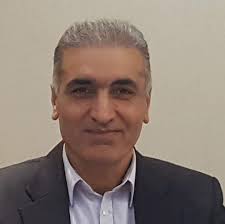-
Qatar's contradictory relationships

Qatari's foreign minister was the first official who visited Afghanistan and to meet the Taliban government. Compared to other countries, Doha has won the trust of the US and has hosted the largest American military base in the Middle East. At the same time, the Taliban movement had opened its political office in Doha in 2013 and then began to host the peace negotiations between the Taliban and the US.
Doha, on the other hand, has built strong ties with Iran despite Tehran's negative role to raise sectarian instability in the Middle East and continues to occupy UAE territories. Added to that, Iran considers as the main source and supporter of Shia militia groups who’s occupying four Arab capitals and continues their regional military and political intervention as a real threat to the Arab community. Simultaneously, Qatar has been in a close and strategic relationship with Turkey as the main supporter of the Muslim Brotherhood movement in several Arab countries such as Egypt, Syria, and Libya.
In purpose to become a regional power, Qatar continued its relations with Islamists groups in the region. For instance, Doha is still the safe place for many Islamist leaders such as Yousef Al-Qaradawi and other Muslim Brotherhood leaders and Hamas movement as well.
Furthermore, since the beginning of the so-called "Arab Spring" Qatar continued to keep its ties with Muslim Brotherhood and has been involved actively to support them with active coordination with Turkey. Such Qatari's ties with radical Islamist groups during the Arab Spring have led to the political and economic embargo towards Doha by several Arab countries in 2017. Such punishment was due to Qatar's rejection to cut its relations with the radical groups and to shut Al-Jazeera TV channel that was based in Doha.
Qatar's close ties with the Taliban was the unique opportunity for Doha to become the centre of the West's attention in terms of the evacuation processes that had been done by Qatar's ambassador in Kabul after the Taliban took over the country. Even US President Joe Biden has mentioned Qatari's role in Afghanistan and said, "No country has done more than Qatar,”.
On the other hand, Qatar's gamble with radical groups such as the Taliban in recent evacuation might have brought Doha to international politics as a logistic necessity for the US and other European countries. In the previous experiences of such gamble relations with the Islamists groups, Qatar has been failed to play the expected role since the beginning of Arab spring. The main Qatari allies, the Muslim Brotherhood, had failed in Egypt, Tunisia, and Maroco after the first election.
In Syria and Libya, Qatari's Muslim Brotherhood militias have been incompetent, and they served Turkey and Iran's agendas that brought instability to the region. Doha's relations with the Taliban might repeat the same scenario of the Arab spring as the gamble with the special Salafist movement such as the Taliban seems riskier and unsecure, and the wind doesn't always run as the ships desire.
by: Zara Saleh

You May Also Like
Popular Posts
Caricature
BENEFIT Sponsors BuildHer...
- April 23, 2025
BENEFIT, the Kingdom’s innovator and leading company in Fintech and electronic financial transactions service, has sponsored the BuildHer CityHack 2025 Hackathon, a two-day event spearheaded by the College of Engineering and Technology at the Royal University for Women (RUW).
Aimed at secondary school students, the event brought together a distinguished group of academic professionals and technology experts to mentor and inspire young participants.
More than 100 high school students from across the Kingdom of Bahrain took part in the hackathon, which featured an intensive programme of training workshops and hands-on sessions. These activities were tailored to enhance participants’ critical thinking, collaborative problem-solving, and team-building capabilities, while also encouraging the development of practical and sustainable solutions to contemporary challenges using modern technological tools.
BENEFIT’s Chief Executive Mr. Abdulwahed AlJanahi, commented: “Our support for this educational hackathon reflects our long-term strategic vision to nurture the talents of emerging national youth and empower the next generation of accomplished female leaders in technology. By fostering creativity and innovation, we aim to contribute meaningfully to Bahrain’s comprehensive development goals and align with the aspirations outlined in the Kingdom’s Vision 2030—an ambition in which BENEFIT plays a central role.”
Professor Riyadh Yousif Hamzah, President of the Royal University for Women, commented: “This initiative reflects our commitment to advancing women in STEM fields. We're cultivating a generation of creative, solution-driven female leaders who will drive national development. Our partnership with BENEFIT exemplifies the powerful synergy between academia and private sector in supporting educational innovation.”
Hanan Abdulla Hasan, Senior Manager, PR & Communication at BENEFIT, said: “We are honoured to collaborate with RUW in supporting this remarkable technology-focused event. It highlights our commitment to social responsibility, and our ongoing efforts to enhance the digital and innovation capabilities of young Bahraini women and foster their ability to harness technological tools in the service of a smarter, more sustainable future.”
For his part, Dr. Humam ElAgha, Acting Dean of the College of Engineering and Technology at the University, said: “BuildHer CityHack 2025 embodies our hands-on approach to education. By tackling real-world problems through creative thinking and sustainable solutions, we're preparing women to thrive in the knowledge economy – a cornerstone of the University's vision.”
opinion
Report
ads
Newsletter
Subscribe to our mailing list to get the new updates!






















